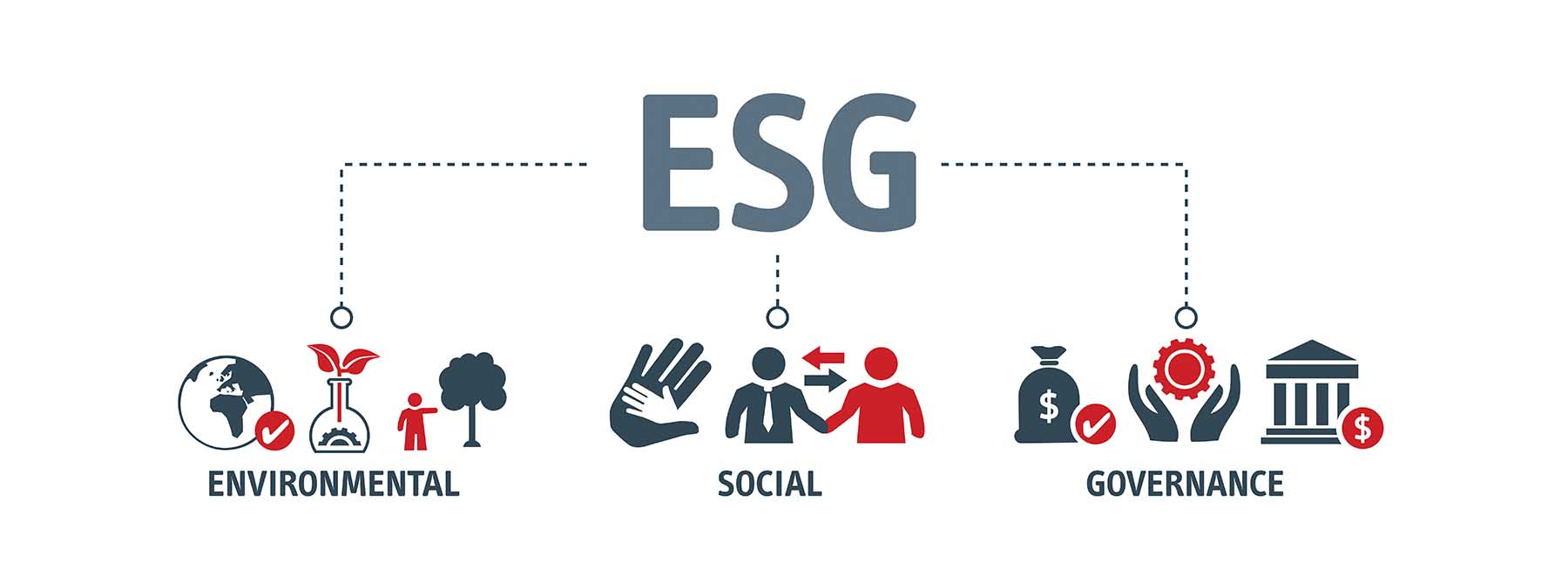- The Global Aspect of Financial Advice
- Impact Investing: Advisors’ Expertise for Clients
- How the Pandemic Influenced ESG Investments
- ESG Investments for Retirement Plan Participants
- The Legislation on ESG Investing
The Global Aspect of Financial Advice
Today, financial advisors need a global perspective. Everything is so interconnected now that to be successful, everyone in finance needs to be aware of investments and economies all over the world.
This global approach also ties into the push for advisors to promote a sustainable future.
Advisors who have adopted this modus operandi are better positioned to provide clients with great expertise and guidance on investing, but more specifically, on impact investing. Thus, clients can start by asking what exactly advisors mean by impact investing. Financial advisors for their part should look for opportunities to frame the conversation around individual’s values. There’s some disagreement on the term in the financial community. It’s been referred to as “social responsibility investing” and “sustainable investing” and as “ESG investing.” A broader definition would be that impact investing is any investment driven by values.
Impact Investing: Advisors’ Expertise for Clients
Social and environmental values aren’t always a priority for clients when talking about their financial plans and goals. That’s what an informed, proactive advisor is for. Taking a customer-centric approach, financial advisors can frame the conversation, and then listen. They can then offer curated options based on the client’s own set of values. This proactive invitation to clients to discuss values is a little unusual, but it’s important. Even when they are interested in it, some people don’t initiate discussions about ESG investing because it is a relatively new field. So advisors can open the door for them.
A good place to start is to find what areas an investor does not want exposure to. For clients unfamiliar with specific ESG criteria, just knowing that they exist can help them rethink their strategy. They often appreciate learning about new policies that align with their values.
Once a client’s values are clear, they should expect their advisor to get to work determining the best way to adjust their portfolios to reflect them. This could happen through specific diagnostic and analytical tools or another approach to strategically align investments with a client’s ethics and principles.
Advisors can then work with each client to help them invest all or just a portion of their portfolio in values-based holdings that reflect who they are and what they stand for. New impact-oriented investors tend to start with 5% to 15% of their portfolio in ESG investments. Of course, this depends on the individual, as ESG investing is very subjective.
If a client decides to proceed, a dedicated financial institution can offer them a curated line-up of mutual funds and ETFs or apply positive and negative screens to any professionally managed portfolios. They often give clients choices among socially responsible funds that align with their values and are evaluated based on ESG factors, such as climate change, conflict risk, and human rights. Some really exciting options might include enhanced impact investments, which are highly targeted solutions, including special and time-limited offerings, such as purpose-driven structured notes, green bonds, and private funds.
More about that curated line-up of mutual funds and ETFs: Not every fund lives up to the ESG label, so it’s important to strategically and rigorously conduct due diligence.
For clients, the important takeaway is that an advisor’s recommendations should be well informed. Impact investing is a large enough space where one can make informed choices among many options.
Advisors may be anticipating questions from clients about returns on impact investing — and clients may have a lot of questions. These questions should be answered with data. This is what informed clients want and need from an advisor. For instance, data on how U.S. sustainable open-end funds and exchange-traded funds continued to break records in 2020, according to Morningstar, increasing in number by 30% over 2019.
During 2020, flows into US sustainable mutual funds and ETFs reached $51 billion, pushing the total of worldwide sustainable assets under management to $1.7 trillion, according to Morningstar. The U.S. inflows were up sharply from 2019, when flows were $21 billion, and nearly tenfold over 2018 when flows were $5 billion.
Investing for impact doesn’t mean compromising one’s financial objectives. Investment returns have been shown to be similar between sustainable indexes and the broader stock market, according to Morningstar. ESG funds are generally well-managed and tend to invest in companies with CEOs who have the bottom line in mind, not just ESG. But because of their ESG commitments, they are more attuned to the risks of having their product lines boycotted or picket lines in front of corporate offices or not being ranked by either Morningstar, MSCI, or one of the other ratings firms. Quite simply, they are more concerned with due diligence. And that can boost their profitability.
Making a difference doesn’t just mean lifestyle changes, but changes to where people put their money. Individuals have the opportunity, now, to help finance a more sustainable world. And professionals have the privilege and responsibility of making that opportunity available and achievable.
How the Pandemic Influenced ESG Investments
The pandemic is an acceleration of the plans to integrate more ESG and climate objectives in various investment processes. In fact, experts expect the trend not only to continue but accelerate, particularly this year when climate change is on everybody’s lips.
Investors are increasingly committed to net-zero targets while so called wealth creators will also incorporate that in their offering. So portfolios will likely be built with an ESG or climate outcome in the first place.
In Europe some investors are starting to look at ESG rating agencies. This indicates that there will be some form of regulation in Europe.
In terms of what advisors are trying to solve and what particular aspects they are tackling, some advisors are afraid of diving into ESG investing because they worry about not being able to know enough about the individual investments. They are afraid that they will identify investments that are green in name only, otherwise known as greenwashing.
ESG Investments for Retirement Plan Participants
With only 3% of 401(k) plans currently offering investments labeled as adhering to environmental, social and governance causes, most retail investors are unable to establish a footprint in the wildly popular sustainable investing space.
But, as investor advocates and regulators increase pressure for simpler and more transparent proxy voting procedures, it is possible retail investors could gain considerable leverage over the way fund companies currently vote on shareholder proposals.
While the basic mechanics of annual proxy voting is still a long way from the kind of user-friendly transparency that would invite the involvement of most retirement plan participants, a report by Morningstar describes proxy voting as the “sleeping giant” of ESG investing. “We’re suggesting proxy voting needs to be made more visible, so it does become a decision point for investors,” said Jackie Cook, Morningstar’s director of stewardship research.
Mutual fund investors, as indirect investors, do not directly own shares of a publicly traded company inside a fund and are not allowed to cast proxy votes on shareholder proposals, but they can track the way their mutual funds and mutual fund companies are voting.
Since mutual funds exercise proxy votes on behalf of fund investors, they are duty-bound to represent the interests of their investors when voting at shareholder meetings. When it comes to passive investment strategies, proxy voting takes on an even-higher level of significance because divestment is less of an option.
“The best place to start is by looking at the asset manager, because research shows the house view prevails, and that will give a sense of how they proxy vote for the underlying funds,” Cook said.
For example, the Fidelity Investments funds subadvised by Geode Capital Management supported nearly 90% of key ESG resolutions, whereas Fidelity’s FMR-managed funds supported around 50% of resolutions, according to the report.
An even starker contrast can be drawn between The Vanguard Group’s index funds’ low support for key ESG resolutions — tracking the Vanguard “house view” at 24% support — and the Wellington-managed Vanguard funds, which supported almost 80% of the ESG resolutions voted on.
To describe proxy voting as nuanced would be an understatement and most retirement plan participants have neither the resources nor wherewithal to specifically track the proxy voting of the assets managers and funds listed on their company-sponsored retirement plan menus.
As part of Morningstar’s research, it surveyed investors to gauge their comfort with and understanding of proxy voting and found about half understood the process, according to Samantha Lamas, behavioral researcher at Morningstar. “It was one of our main concerns, because proxy voting has always been a vague and hazy issue with investors,” she said. “We’re hoping to bring proxy voting to light, but in the present day one thing investors can do is take a look at how the funds they own now are voting.”
Follow us on Linkedin
Morningstar’s research on S&P 500 Index Funds’ proxy voting on ESG resolutions found that some funds supported all resolutions voted and some supported fewer than 10%. Even dedicated ESG funds, those identified as sustainable funds, did not support sustainability measures at company shareholder meetings as routinely as one might expect. Morningstar research finds that, in 2020, some supported all key ESG resolutions voted, while others supported fewer than 20%.
This kind of information, if more readily available and accessible to plan participants, could enable retail class investors to have more control over how their dollars are being aligned with certain ESG-related causes.
Mike Willis, founder and lead portfolio manager of Index Funds, isn’t waiting for regulators to require more transparency or create new ways to engage investors. Investors in the Index Funds S&P 500 Equal Weight (INDEX) are able to vote through the fund company website on underlying company shareholder resolutions, which Willis then considers when voting on behalf of fund shareholders. “How can a fund advisor vote on behalf of shareholders if he doesn’t even ask them their opinion?” Willis said. “Our first rollout is to get a viable proxy voting product on the market, but we have a long-term vision to decentralize the proxy voting process back to the individual investors.”
The Legislation on ESG Investing
The legislation on ESG investing (the Climate Risk Disclosure Act) is advancing to the House floor as the SEC is taking public comments on the idea of increasing requirements for climate-risk and environmental, social and governance disclosures, which have been voluntary for many years.
The SEC is expected to issue rules within two years requiring companies to report greenhouse gas emissions, fossil-fuel-related assets and the impact of climate change on valuation. The backers of these measures say it is necessary to help investors understand climate risk and push companies to address it.
So in the near future companies are likely to face more requirements for ESG disclosures and thus, become more transparent and interesting for investors.
RiXtrema offers a wide range of financial tools to our clients. You can learn more about them on our website www.rixtrema.com.
Our Portfolio Crash Testing (PCT) tool helps financial advisors determine the best way to adjust clients’ portfolios to reflect their values and needs.








